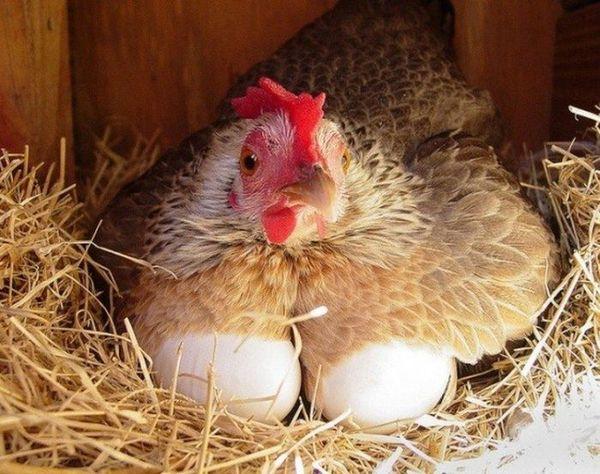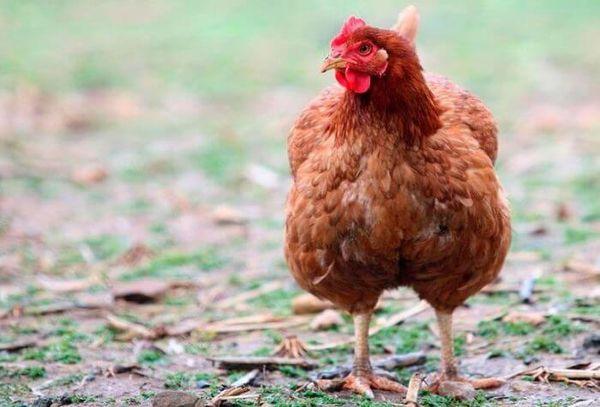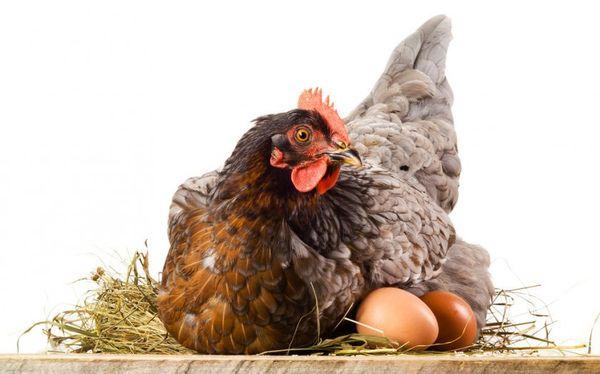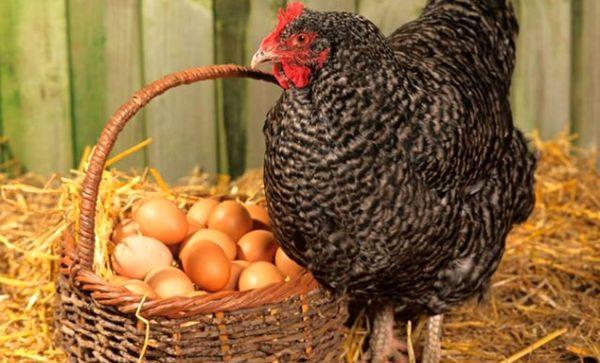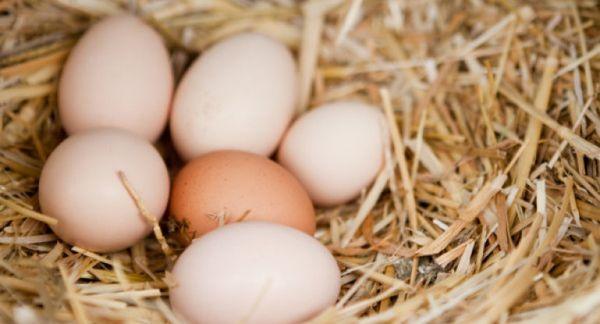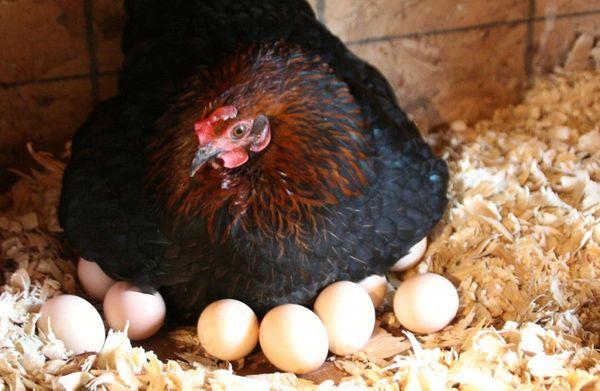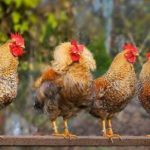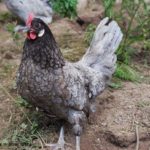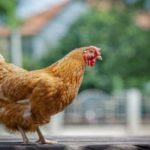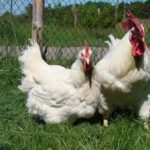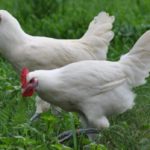Own products have an undeniable priority over factory-made analogues, so suburban residents are of particular interest in purchasing chickens for their households for the purpose of their further breeding and providing the family with tasty dietary eggs. Every novice poultry farmer wonders how many eggs one purchased chicken will lay per day, and whether their breeding will be profitable. Let's figure it out.
How many eggs does a chicken lay?
The hen lays eggs unevenly throughout the year. Its productivity depends on a number of factors. To assess the profitability of raising chickens and their productivity, it is easiest to count eggs over a year.
Per day
It is impossible to unambiguously determine how many eggs an average laying hen produces per day. Under ideal housing and feeding conditions, one adult chicken at the age of one or two years in the summer produces one egg in one or two days. In winter, productivity drops significantly. During this period, the chicken lays eggs no more than once every few days.
In Week
Depending on the breed and individual characteristics, a young chicken can lay 4-7 eggs per week in the summer. In birds older than two years of age, productivity drops by 10-20% every year.
Per month
In a month, at least 15 eggs are produced from one hen. In the summer, with intensive feeding, a young healthy chicken can please its owners with thirty eggs. The average standard indicators are 20-24 eggs per month.
In a year
The minimum number of eggs obtained per year from one chicken is 200 pieces. Under favorable conditions and compliance with feeding standards, the average number of eggs obtained from a healthy population reaches 280-300 eggs per year. A highly productive bird lays up to 340 eggs per year.
How often does a chicken lay eggs?
The average young chicken of the egg breed with a standard level of egg production lays eggs almost every day in the summer. In winter, with the exception of the molting period, the chicken lays eggs every two to three days.
What determines the quantitative indicator of egg production in chickens, how to increase it
The productivity of chickens depends on many accompanying factors:
- feeding features;
- conditions of detention;
- age of the bird;
- breed characteristics;
- time of year.
Every novice poultry farmer wants to get the maximum number of eggs from laying hens. However, this will require a lot of effort - favorable living conditions, timely feeding and daily control of the livestock will allow you to achieve the desired result.
Diet of laying hens
To maintain egg production at a high level, the following groups of feeds are included in the diet of laying hens:
- carbohydrates;
- proteins;
- minerals;
- vitamins.
Feeding chickens should be evenly distributed throughout the day and occur at the same time. In private farmsteads, three meals a day are most often practiced. The bird is given:
- wet mash consisting of mixed feed and various additives;
- dry grain, which ensures the functioning of the stomach;
- fresh herbs;
- vitamins;
- mineral feeds responsible for shell strength.
The use of ready-made balanced feed for feeding chickens in accordance with age and feeding standards has a positive effect on the productivity and health of the livestock.
Reduced egg production
As a rule, in the summer, healthy chickens produce eggs consistently. The decline in productivity in winter is influenced by many factors:
- The reason for the decrease in egg production in winter is the shortening of daylight hours. To maintain productivity at a high level, laying hens are provided with additional lighting using infrared lamps.
- Violation of the temperature regime is a common cause of a drop in egg production. The average standard temperature for chickens is 15 °C. At low temperatures, high-quality insulation of the chicken coop and heating equipment are required.
- Stagnant air and high humidity cause colds in chickens and reduce productivity.The chicken coop requires a high-quality ventilation system that provides access to fresh air and does not create drafts.
- Inconsistency of nutrition with the needs of the bird is reflected in the level of egg production. The health and productivity of chickens in winter require special attention. Adding various vitamins during this period will help maintain productivity at a high level.
- Lack of space in the coop is also a big factor. No more than five chickens can live on one square meter. With denser plantings, chickens become anxious and lay eggs much worse.
- For one or two chickens, a comfortable nest is required. If there are not enough nests in the chicken coop, the laying hens look for secluded places in the yard and lay there.
- Every year, chickens undergo a seasonal change of coat. During the molting period, productivity drops significantly or disappears completely. The use of fortified feed during this period will help speed up re-feathering and resume egg production.
- Vaccinations help prevent a number of common diseases. Daily careful inspection of the livestock contributes to the timely identification of sick individuals and their immediate treatment.
- The presence of parasites in the feather cover often causes anxiety in chickens and reduces their productivity. Timely disinfection of the chicken coop using slaked lime or specialized preparations will help prevent their occurrence. Having a sufficient amount of sand and ash in the chicken coop also helps get rid of annoying parasites.
- Starting from the age of five months, chickens begin to lay eggs. Every month their productivity increases. However, after two years of age, egg production invariably declines.To maintain it at the same level, timely renewal of the herd is required.
Constant control over the above factors contributes to the cultivation of healthy livestock with high egg production.
Breed characteristics
Depending on the expected productivity, the following breeds are bred in private farmsteads:
- meat-egg chickens are capable of producing 150-180 eggs;
- egg birds lay 260 or more eggs;
- meat ones allow you to get 110-130 eggs per year.
In the summer, with proper care and proper nutrition, healthy chickens lay eggs every day. In winter, it is not possible to maintain productivity at the same level. Frosts, short daylight hours and molting greatly affect productivity and reduce it. During the molting period, the bird does not lay eggs at all.
Do chickens lay eggs without a rooster?
On a private farmstead, the need to purchase a rooster arises in the following cases:
- for fertilizing eggs and hatching your own chickens;
- to enjoy morning singing;
- to get tasty meat.
If there is no desire to receive your own chickens from laying hens every year, the presence of a rooster on the farm is not necessary.
Choosing the right breed, favorable growing conditions, feeding taking into account norms and age characteristics allows you to raise a healthy flock and receive delicious homemade eggs every day.

